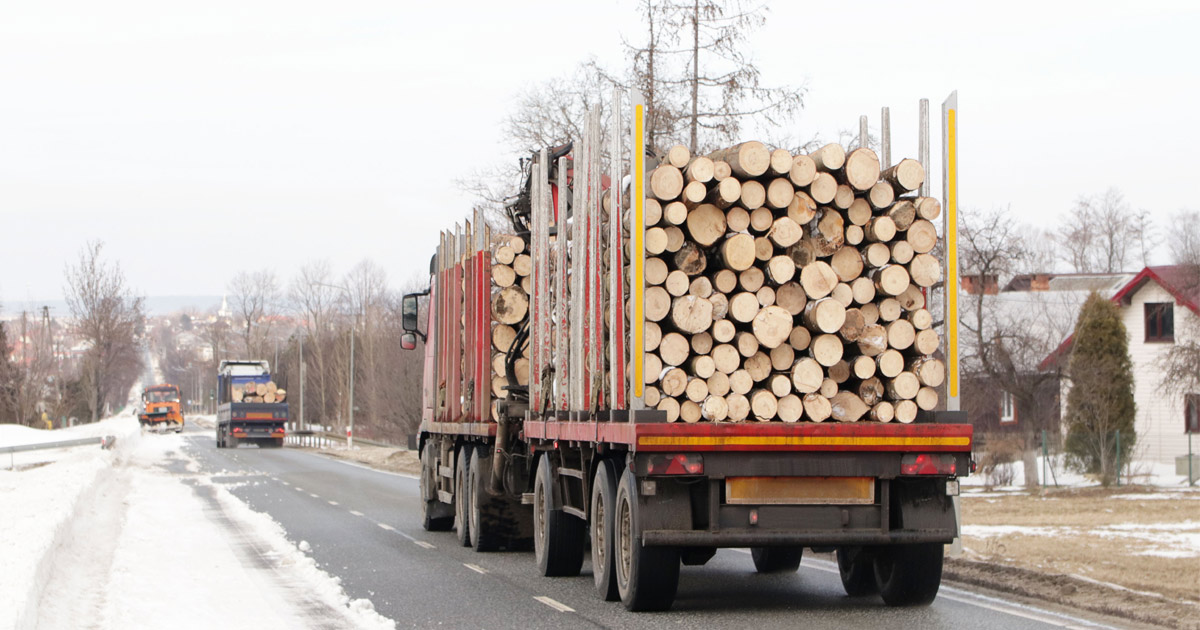Most motorists are accustomed to driving near commercial trucks that are overloaded. Many people do not think about the possible dangers until it is too late. These accidents can be caused by truck drivers, but other parties may be held liable as well.
The Ohio trucking industry is the fourth largest in the United States. Its road system is also the seventh largest, so when you combine these two factors, the end result is a high number of truck accidents. Additionally, car drivers cannot tell how these trucks are loaded and whether or not they follow the strict safety regulations.
Proving fault after an accident with oversized or overloaded truck can be challenging because there can be more parties involved. Aside from the driver, you may also have to consider the entity that owns the truck or trailer, the truck manufacturer, a parts manufacturer, or a cargo loader. In some cases, a contractor or local government that was maintaining a highway or designed it could be responsible for what happened. Some plaintiffs are able to establish a chain of liability and end up making multiple claims.
Truck drivers who exhibit negligent driving behaviors can cause major accidents. Like other motorists, they could text and drive, drive while fatigued, speed, drive under the influence, or commit other reckless acts. These drivers are supposed to inspect their trucks to ensure they are properly maintained and correctly loaded, so truckers could be partly responsible for crashes.
A truck driver’s insurance coverage might provide adequate compensation to a claimant, but oftentimes, it is logical to pursue it from other parties. The trucking company may have violated federal and/or state laws by not following the size and weight regulations. Other example include forcing drivers to work longer hours without rest, not replacing worn out truck parts, and failing to have vehicles inspected regularly or at weigh stations.
The cargo company might be at fault if the shipment is improperly loaded, overloaded, or not secured. There are regulations that apply to all of this as well, and these companies may break the rules just like drivers and trucking companies.
When truck parts fail, this could be a direct result of poor maintenance or a manufacturing defect. If the road or highway has defects, contractors or local governments might end up being liable.
What Safety Regulations Apply to Large Trucks?
Federal laws regulate trucks that travel on interstate highways, and additional ones also apply in each state. Some of the main regulations apply to length, width, and weight. There is no federal height requirement, but states usually specify the size.
Even though these proportions seem adequate, certain things like mobile homes being transported on trailers are bigger. State laws apply to oversized and overweight vehicles and can vary widely. Officials can set higher limits, taking into consideration practical weight limits and sizes for roads, highways, bridges, overpasses, and any other structures that these vehicles must move over.
Companies that plan to send out or drive oversized and overweight vehicles have to obtain permits before doing so. Certain calculations, considerations, and assessments must be made ahead of time. Commercial carriers need to prove that the large vehicles will not exceed any structural limits. On top of that, they need to include information about the routes, including rest and fuel stops.
There are also state regulations that apply to making the oversized and overweight trucks highly visible to others. You have likely seen the special signage on some with the words “oversized load” plus blinking lights and flags. Some also have extra turn signals and separate escort vehicles in the front or back.
Oversized vehicles are supposed to be driven below posted speed limits, so you might see them traveling at about 15 miles per hour slower than the other vehicles on the road. They are also required to stick to the route specified on the permits; deviating from this could lead to problems. If they encounter a closed road due to construction or something similar, the driver should contact law enforcement or the permit office. They should also remain in the right lane at all times unless they are making a left turn or passing.
There are also restrictions that apply to operating times, but the special permits generally allow them to be on the roads seven days a week during daylight hours. Some oversized and overloaded trucks are often not permitted to be traveling during rush hours, which are usually 6:30 a.m. to 9:00 a.m. and 4:30 p.m. to 6:00 p.m. on week days. There are also restrictions on weekends, and trucks that have special hauling permits must also stay off the roads on major holidays, such as Christmas, Thanksgiving, Labor Day, and Memorial Day. These laws vary by state and the permits obtained.
Ohio has hours-of-service (HOS) limitations that commercial drivers must follow, whether they are driving vehicles with or without special permits. Drivers of property-carrying vehicles are allowed to work for 14 consecutive hours, as long as they have had 10 straight hours off-duty beforehand. Passenger-carrying vehicle drivers can work for 15 hours. Those time limits include driving and other duties, like loading up cargo, and the driving time limit is 11 or 10 hours.
What Should I Do After an Accident With an Oversized/Overloaded Truck?
As with any type of accident, the first order of business is to make sure that no one has been seriously hurt. You will want to call 911 immediately, and they will usually ask if an ambulance is needed. It is wise to request one for these types of crashes since the large vehicles can easily cause serious injuries and even fatalities to drivers and passengers in smaller cars and trucks.
Try to get the truck driver’s contact information plus a photo of their license and insurance card. You can ask if they are an independent contractor driving a vehicle they own or if they work for a trucking company. If possible, snap a good number of photos, making sure that they show any bodily injuries and property damage. Also, take pictures of all the signage and lights on the truck, skid marks, weather conditions, construction signs, and anything else that could show how what led to the accident.
You may also be able to get contact information from any witnesses who may have stopped at the scene. It is also important to call your insurance company to let them know what happened and to ask law enforcement personnel about getting a copy of the police report. Try to write down what happened before you forget all the details, and save every medical report and bill that you get later on in order to track all of your expenses.
Since truck accidents can be so complex, you can also think about contacting a truck accident lawyer. These legal professionals have experience with these kinds of claims and can determine if you are eligible to collect compensation for your medical expenses, property damage, lost time from work, pain and suffering, and more.
Cincinnati Truck Accident Lawyers at the Wolterman Law Office Can Handle Your Oversized/Overloaded Truck Accident Claim
Accidents with oversized/overloaded trucks can be traumatic, but one of our experienced Cincinnati truck accident lawyers at the Wolterman Law Office can offer the legal support and guidance you need. For a free consultation, call us at 513-488-1135 or complete our online form. Located in Loveland, Ohio, we help clients in Hamilton County, Fairfield, Norwood, and Forest Park.


